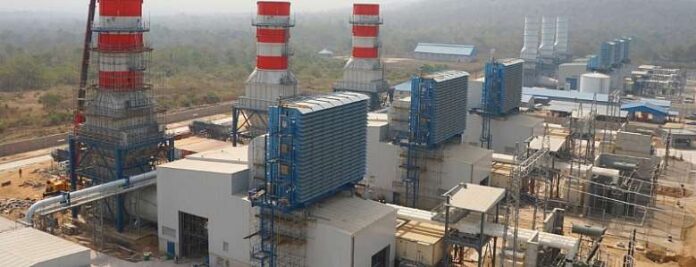
Independent Power Producers Ghana has slammed the Public Utilities Regulatory Commission (PURC) latest reduction of electricity tariff for some consumers.
They warn that the reduction could escalate ECG’s debt portfolio to $1.8b by the end of this year, 2024.
Last week, the PURC announced a 6.56% reduction for residential consumers within the consumption bracket of 0-300 kilowatts per hour.
But the Chief Executive Officer of the Independent Power Producers Ghana, Dr. Elikplim Kwabla Apetegor in a statement argued that the action by the PURC could have adverse efefect on the energy sector.
”This situation mirrors the repercussions of similar tariff actions by the PURC in 2018 by 17.5% and 30% for both residential and non-residential customers, which significantly contributed to the financial gap faced by the Electricity Company of Ghana (ECG). Since then, ECG has never met the Revenue Requirement of the sector. This has placed an avoidable strain on the ECG’s sustainability, resulting in a cycle of financial insolvency, operational and governnance deficiencies.
”The core of ECG’s financial woes lies in the imbalance between revenue generation and operational costs. Despite ECG’s commitment to a fixed US$43 million monthly sum to IPPs, it continues to pile up about 70% of its monthly obligations to the Independent Power Producers alone. With this tariff reduction, the Government of Ghana renegotiation appeals to IPPs may hit the rock, as the risk of default on obligations going forward becomes high.”
Below is the full statement.
The power sector insolvency to worsen!
The power sector is likely to experience an exacerbated debt of about USD$1.8 billion to the IPPs alone, by the end of the year 2024. This prediction is based on Public Utilities Regulatory Commission’s (PURC) decision to further reduce electricity tariffs by 6.56% amidst escalating variable costs of electricity production such as fuel,maintenance,idle capacity charges, as a result of commissioned generation capacities coming on-grid and off-grid generations. Natural gas, for instance, sells currently at an average high price of 8.8 US Cents/mmscf, continuous depreciation of the GHS etc. Again, the generation tariffs are set an automatic upward adjustments necessitated by the increasing variable costs and other Increased Cost Events.
The tariff reductions, while beneficial for consumers, have not been matched with a decrease in production costs (Decreased Costs), leading to significant financial deficits. Meanwhile, the sector is plagued by inefficiencies, including high transmission and distribution losses, which exacerbate the financial challenges.
This situation mirrors the repercussions of similar tariff actions by the PURC in 2018 by 17.5% and 30% for both residential and non-residential customers, which significantly contributed to the financial gap faced by the Electricity Company of Ghana (ECG). Since then, ECG has never met the Revenue Requirement of the sector. This has placed an avoidable strain on the ECG’s sustainability, resulting in a cycle of financial insolvency, operational and governnance deficiencies.
The core of ECG’s financial woes lies in the imbalance between revenue generation and operational costs. Despite ECG’s commitment to a fixed US$43 million monthly sum to IPPs, it continues to pile up about 70% of its monthly obligations to the Independent Power Producers alone. With this tariff reduction, the Government of Ghana renegotiation appeals to IPPs may hit the rock, as the risk of default on obligations going forward becomes high.
Dr. Elikplim Kwabla Apetorgbor
CEO, IPPG



